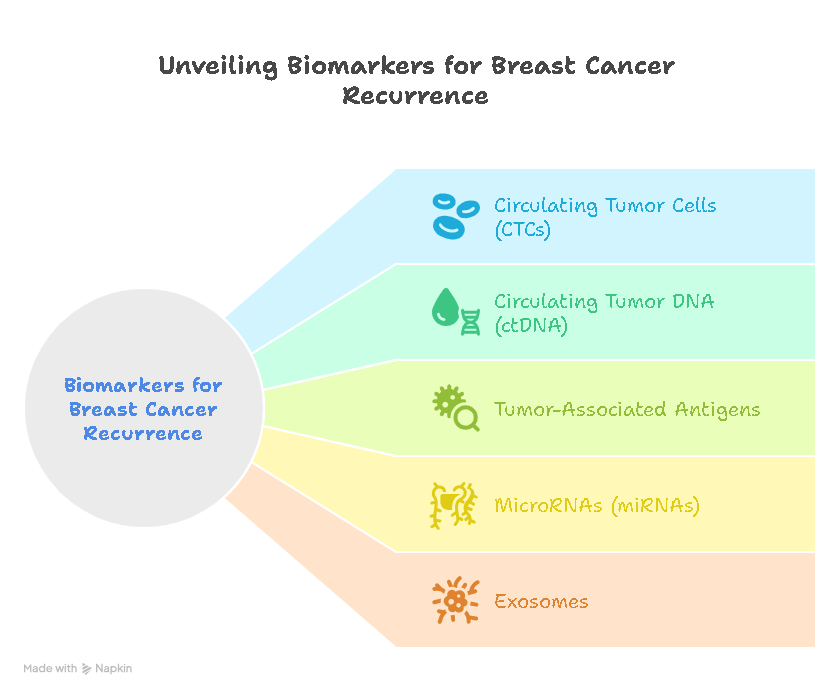Discover fertility-sparing oncology surgery options for women facing cancer. Learn about procedures, benefits, risks, and how to preserve fertility while treating gynecologic cancers effectively. Explore how fertility-sparing surgery can offer hope for preserving reproductive potential in early-stage gynecologic cancers. Understand the latest advancements, patient considerations, and support available for informed decision-making in oncology care.
Fertility-Sparing Treatment in Early Endometrial Cancer: Preserving Hope
Endometrial cancer, a malignancy of the lining of the uterus, typically affects postmenopausal women. However, a rising trend in its occurrence among younger women, especially those of childbearing age, poses unique challenges. For these women, fertility-sparing treatment options have emerged as a beacon of hope, offering a chance to combat cancer while preserving the possibility of future pregnancies.
Understanding Early Endometrial Cancer
Early endometrial cancer refers to cancers that are diagnosed at an early stage, often confined to the inner lining of the uterus (endometrium). Traditionally, treatment involves surgical removal of the uterus (hysterectomy), which is effective but irreversible and leads to infertility. This approach has been the standard of care due to the aggressive nature of endometrial cancer and its potential to spread beyond the uterus if left untreated.
The Shift Towards Fertility-Sparing Approaches
Recent advancements in oncology have paved the way for fertility-sparing treatments in carefully selected cases of early endometrial cancer. These approaches aim to treat the cancer while preserving the uterus and ovaries, thus maintaining reproductive function.
Key Fertility-Sparing Techniques
- Hormonal Therapy: This approach involves the use of hormones such as progestins, which can induce regression of early endometrial cancer cells. Progestins work by promoting differentiation of cancerous cells into more mature, less aggressive forms. Regular monitoring through biopsies and imaging is crucial to assess response to therapy.
- Hysteroscopic Resection: In cases where the cancer is confined to a small area within the endometrium, a hysteroscopic procedure can be employed to remove the cancerous tissue while sparing the uterus. This technique is suitable for tumors that are low-grade and superficial.
- Combination Therapies: Sometimes, a combination of hormonal therapy and minimally invasive surgery may be utilized to achieve optimal outcomes. This approach is tailored based on the individual characteristics of the cancer and the patient’s reproductive goals.
Patient Selection Criteria
Not all women with early endometrial cancer are candidates for fertility-sparing treatment. Careful consideration is given to factors such as the stage and grade of the cancer, the presence of risk factors for recurrence, and the patient’s desire for future fertility. A comprehensive evaluation by a multidisciplinary team including gynecologic oncologists, reproductive endocrinologists, and pathologists is essential to determine eligibility and formulate a personalized treatment plan.
Challenges and Considerations
While fertility-sparing options offer significant benefits, they are not without challenges. The risk of cancer recurrence and the need for long-term surveillance are important considerations. Additionally, the emotional and psychological impact of balancing cancer treatment with fertility preservation can be profound for patients and their families.

“Health is wealth, especially for women, whose well-being forms the foundation for a prosperous life”
Fertility-sparing oncology surgery treatment represents a promising frontier in the management of early endometrial cancer, providing a viable option for young women who wish to preserve their reproductive potential. Advances in medical science and evolving treatment paradigms continue to expand these options, offering renewed hope and quality of life to those facing this diagnosis.
As research progresses and outcomes are further studied, the integration of fertility preservation into cancer care pathways will likely become more refined, benefiting a growing number of women worldwide. In the realm of early endometrial cancer, the pursuit of effective, compassionate care remains paramount, ensuring that patients not only survive but thrive beyond their diagnosis.
Future Directions and Considerations
Looking ahead, ongoing research aims to refine and expand fertility-sparing strategies for early endometrial cancer. Clinical trials are investigating new hormonal agents, optimal treatment durations, and predictors of treatment response to further enhance outcomes. The goal is to balance effective cancer treatment with maximal preservation of reproductive function.
Additionally, advancements in imaging techniques and molecular profiling hold promise for better identifying which patients are most likely to benefit from fertility-sparing approaches. This personalized approach ensures that treatment decisions are based on individual cancer characteristics and patient preferences.
Patient Education and Support
Central to the success of fertility-sparing treatment is comprehensive patient education and support. Women diagnosed with early endometrial cancer must be empowered with information about their treatment options, including the benefits, risks, and long-term implications of each approach. Counseling should address fertility preservation methods, potential outcomes, and emotional aspects to help patients make informed decisions aligned with their values and goals.
Multidisciplinary Collaboration
Successful implementation of fertility-sparing treatment requires collaboration among diverse healthcare professionals, including gynecologic oncologists, reproductive endocrinologists, psychologists, and fertility specialists. This multidisciplinary approach ensures that treatment plans are holistic, addressing both cancer management and fertility preservation needs.
Advocacy and Awareness
Advocacy efforts play a crucial role in raising awareness about fertility-sparing options for early endometrial cancer. By advocating for equitable access to comprehensive cancer care, including fertility preservation services, advocates and healthcare providers can empower women to make informed choices about their health and fertility.

Fertility-sparing treatment represents a transformative approach in the management of early endometrial cancer, offering renewed hope and quality of life to young women facing this diagnosis. As scientific knowledge and clinical practice continue to evolve, so too will the opportunities for preserving fertility while effectively treating cancer.
Through continued research, patient-centered care, and advocacy efforts, the medical community is poised to further improve outcomes and expand access to fertility-sparing options for women worldwide. By prioritizing both cancer treatment efficacy and reproductive autonomy, we can support women in navigating their journey through early endometrial cancer with dignity, compassion, and the promise of a future that includes the possibility of motherhood.
Ethical Considerations and Patient-Centered Care
Ethical considerations play a crucial role in the implementation of fertility-sparing treatments for early endometrial cancer. Physicians must balance the potential benefits of preserving fertility with the imperative to provide effective cancer treatment. Shared decision-making between healthcare providers and patients is essential, ensuring that treatment plans align with the patient’s values, goals, and preferences.
Patient-centered care in this context involves not only addressing medical needs but also understanding the emotional and psychological impact of a cancer diagnosis and fertility concerns. Supportive services, such as counseling and fertility preservation consultations, should be readily available to help patients navigate the complexities of treatment decision-making.
Long-term Monitoring and Survivorship
Long-term monitoring is a critical aspect of fertility-sparing treatment for early endometrial cancer. Regular follow-up visits, imaging studies, and endometrial biopsies are necessary to monitor treatment response and detect any signs of cancer recurrence early. Close collaboration between oncologists and fertility specialists ensures comprehensive care that addresses both cancer survivorship and reproductive health.
Survivorship care plans should encompass personalized strategies for monitoring, managing treatment-related side effects, and promoting overall well-being. This holistic approach supports patients in maintaining optimal health and quality of life beyond their cancer treatment.
Global Perspectives and Access
Access to fertility-sparing treatment remains a challenge in many parts of the world, where healthcare resources and infrastructure may be limited. Advocacy efforts are essential to promote equitable access to fertility preservation options, ensuring that all women, regardless of geographic location or socioeconomic status, have the opportunity to consider fertility-sparing treatments when appropriate.
International collaborations and knowledge-sharing initiatives can further enhance global understanding and implementation of fertility-sparing strategies for early endometrial cancer. By fostering partnerships among healthcare providers, researchers, and policymakers, we can work towards eliminating disparities in cancer care and improving outcomes for women worldwide.
Conclusion
Fertility-sparing treatment in early endometrial cancer represents a significant advancement in oncology, offering a delicate balance between effective cancer treatment and preservation of reproductive potential. As scientific research continues to evolve and clinical practices adapt, the future holds promise for further refining treatment protocols and expanding access to fertility preservation options.
By prioritizing patient-centered care, ethical decision-making, and global collaboration, healthcare providers can empower women facing early endometrial cancer to make informed choices that align with their values and aspirations. Through these efforts, we can continue to advance the field of oncology and improve the lives of women affected by this challenging diagnosis, supporting them on their journey towards health, fertility, and overall well-being.
FAQs on Fertility-Sparing Surgery in Endometrial Cancer
1. What is fertility-sparing surgery in endometrial cancer?
Fertility-sparing surgery in endometrial cancer refers to surgical procedures that aim to remove cancerous tissue while preserving the uterus and ovaries. This approach is considered for women of reproductive age who wish to retain their fertility after being diagnosed with early-stage endometrial cancer.
2. Who is a candidate for fertility-sparing surgery?
Candidates for fertility-sparing surgery typically include women who are diagnosed with early-stage, low-risk endometrial cancer. Selection criteria often consider factors such as the stage and grade of the cancer, absence of certain high-risk features, and the patient’s desire to preserve fertility.
3. What are the surgical techniques used in fertility-sparing surgery for endometrial cancer?
Common surgical techniques include:
- Hysteroscopic Resection: This minimally invasive procedure involves the removal of cancerous tissue from the endometrium using a hysteroscope, a thin instrument with a camera and light.
- Fertility-Sparing Laparoscopic Surgery: In some cases, laparoscopic surgery may be used to remove the cancerous tissue while preserving the uterus and ovaries.
4. How effective is fertility-sparing surgery in treating endometrial cancer?
Fertility-sparing surgery can be effective in treating early-stage, low-risk endometrial cancer. The success of the treatment depends on factors such as the stage and type of cancer, response to treatment, and careful monitoring after surgery to detect any signs of recurrence.
5. What are the risks associated with fertility-sparing surgery?
Potential risks include:
- Risk of Cancer Recurrence: There is a risk that the cancer may recur, which requires regular monitoring and surveillance.
- Impact on Fertility: While fertility-sparing surgery aims to preserve fertility, the ability to conceive naturally may be affected depending on the extent of the surgery and any subsequent treatments.
6. What are the alternatives to fertility-sparing surgery for endometrial cancer?
Alternatives may include:
- Traditional Hysterectomy: Complete removal of the uterus and possibly the ovaries and fallopian tubes, which eliminates the cancer but results in infertility.
- Hormonal Therapy: In cases where surgery is not feasible or preferred, hormonal therapy may be used to manage early-stage endometrial cancer.
7. How is fertility preserved during fertility-sparing surgery?
During fertility-sparing surgery, efforts are made to remove cancerous tissue while preserving the uterus and ovaries. This allows for the potential preservation of a woman’s ability to conceive and carry a pregnancy in the future.
8. How is fertility-sparing surgery monitored after treatment?
After fertility-sparing surgery, close monitoring is essential. This typically includes regular pelvic examinations, imaging studies (such as ultrasound or MRI), and endometrial biopsies to assess for any signs of cancer recurrence or progression.
9. What are the long-term implications of fertility-sparing surgery in endometrial cancer?
Long-term implications may include the need for ongoing surveillance to monitor for recurrence, potential impacts on fertility and reproductive outcomes, and considerations for future pregnancies and childbirth.
10. How can I decide if fertility-sparing surgery is right for me?
Deciding on fertility-sparing surgery involves thorough discussion with your healthcare team. Factors to consider include your age, overall health, stage and type of cancer, desire for future fertility, and potential risks and benefits of the surgery. Seeking input from a gynecologic oncologist and fertility specialist can help in making an informed decision tailored to your individual circumstances.
These FAQs provide a foundational understanding of fertility-sparing surgery in the context of endometrial cancer. For personalized advice and guidance, consulting with healthcare professionals who specialize in gynecologic oncology and reproductive medicine is crucial.
11. What are the chances of becoming pregnant after fertility-sparing surgery for endometrial cancer?
The likelihood of becoming pregnant after fertility-sparing surgery for endometrial cancer varies depending on factors such as the extent of the surgery, response to treatment, and individual fertility factors. Success rates for achieving pregnancy can be influenced by age, ovarian function, and any residual effects of cancer treatment on reproductive organs.
12. How often should follow-up appointments be scheduled after fertility-sparing surgery?
Follow-up appointments are typically scheduled according to a personalized plan developed by your healthcare team. Initially, appointments may be more frequent to monitor healing and assess treatment response. Over time, appointments may become less frequent but should continue regularly to monitor for any signs of cancer recurrence or other health concerns.
13. Can fertility-sparing surgery be performed for all types and stages of endometrial cancer?
Fertility-sparing surgery is generally considered for early-stage, low-risk endometrial cancers. It may not be suitable for all types and stages of endometrial cancer, particularly those with higher risk features or more advanced stages where preservation of the uterus and ovaries may compromise effective cancer treatment.
14. Are there any lifestyle changes or precautions recommended after fertility-sparing surgery?
After fertility-sparing surgery, maintaining a healthy lifestyle that includes regular exercise, a balanced diet, and avoiding tobacco and excessive alcohol consumption is generally recommended for overall well-being. Women who have undergone fertility-sparing surgery may benefit from consulting with their healthcare providers about specific recommendations tailored to their individual health needs and recovery.
15. What support resources are available for women considering fertility-sparing surgery?
Support resources may include:
- Counseling services to discuss emotional and psychological aspects of cancer diagnosis and fertility preservation.
- Educational materials and workshops provided by healthcare organizations and advocacy groups focused on women’s health and cancer care.
- Support groups or online communities where women can connect with others who have undergone similar experiences.
16. How does fertility-sparing surgery impact hormone levels and menstrual cycles?
Fertility-sparing surgery may impact hormone levels and menstrual cycles depending on the extent of surgery and individual factors. Women may experience changes in menstrual regularity, hormone levels, or menopausal symptoms. Monitoring by healthcare providers can help manage any hormonal changes and address related concerns.
17. What research and advancements are being made in fertility-sparing surgery for endometrial cancer?
Ongoing research aims to refine and expand options for fertility preservation in endometrial cancer. This includes studying new surgical techniques, hormonal therapies, and predictive factors for treatment success. Clinical trials are critical for evaluating the safety and efficacy of emerging treatments and improving outcomes for women seeking fertility preservation.
18. How can I prepare for fertility-sparing surgery and recovery?
Preparing for fertility-sparing surgery involves:
- Discussing treatment options and expectations with your healthcare team.
- Planning for post-surgical recovery, including potential support from family or friends.
- Following pre-operative instructions provided by your healthcare provider, such as fasting guidelines and medication management.
- Arranging for transportation to and from the hospital or surgical center on the day of surgery.
19. What are the costs associated with fertility-sparing surgery for endometrial cancer?
Costs can vary depending on factors such as healthcare provider fees, hospital or surgical facility charges, diagnostic tests, and post-operative care. Insurance coverage and financial assistance programs may help offset some of these costs. It’s important to discuss financial considerations with your healthcare team and insurance provider before undergoing surgery.
20. Where can I find more information about fertility-sparing surgery and endometrial cancer?
Seeking information from reputable sources such as healthcare providers, medical organizations specializing in gynecologic oncology, and patient advocacy groups can provide comprehensive information about fertility-sparing surgery and endometrial cancer. Additionally, online resources and support networks can offer valuable insights and experiences shared by others who have navigated similar journeys.
These FAQs aim to provide comprehensive information about fertility-sparing surgery in the context of endometrial cancer. Each woman’s journey is unique, and decisions regarding treatment and fertility preservation should be made in collaboration with healthcare providers based on individual circumstances and preferences.











Leave a Reply